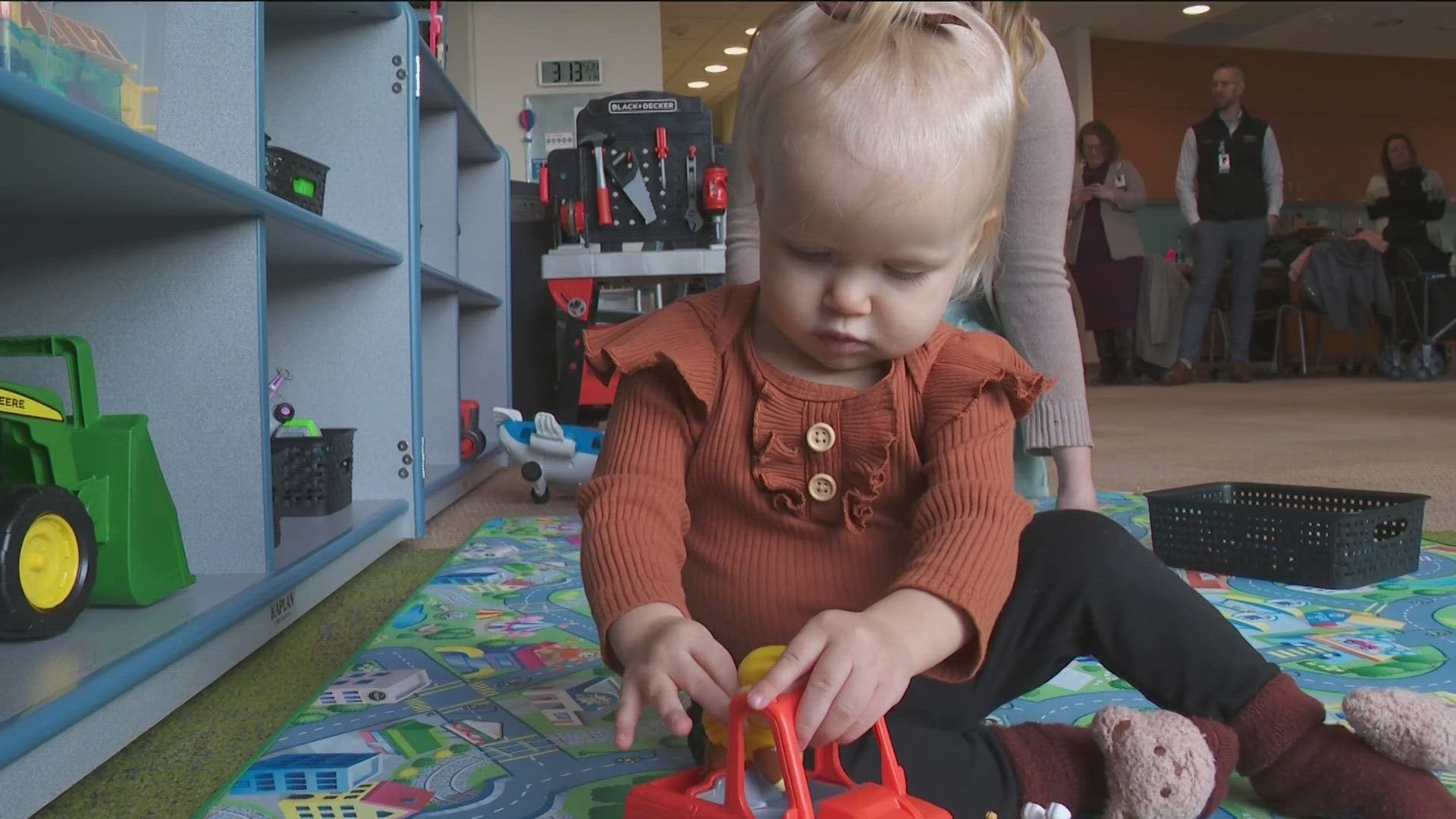MINNEAPOLIS, Minnesota — Alyssa Magnuson pays close attention to her 15-month-old daughter, Stevie Reid.
"She's really picking up on a lot of words lately. And climbing... she's a climber," said Magnuson, who lives near Pine City.
So it came as a surprise when a routine blood test during Stevie's 12-month checkup came back high for lead.
"It was a scary feeling knowing that she had that and I would have never known," Magnuson said.
The Centers for Disease Control and Prevention uses a blood level reference value of 2.5 micrograms per deciliter to identify children with concerning blood lead levels. Stevie's was at 23.4.
After ruling out all the usual reasons, Magnuson was confused. Then a week later, she saw the news about cinnamon applesauce and puree pouches that had been recalled due to elevated lead levels.
"It just felt horrible because it was something that I had been feeding her and I thought it was something that was going to... be a healthier option for an easy, on-the-go snack," Magnuson said.
The recalled brands include WanaBana, Schnucks and Weis. Information on lot codes and UPCs can be found here.
Magnuson said her daughter had been eating the WanaBana Apple Cinnamon Fruit Purée pouches. She had bought them from Dollar Tree.
After realizing why her daughter tested high for lead, she went to the local Dollar Trees to make sure the affected products were off the shelves.
"My doctor thinks that we found it early enough... it's kind of too early to tell but she thinks that she's probably going to be just fine, thank goodness, since she didn't have it very long-term and it was a lower level," Magnuson said.
A facility in Ecuador is linked with the recalled pouches for its cinnamon. According to the U.S. Food and Drug Administration (FDA), samples of cinnamon from the plant contained 2,000 times more lead than what's allowed by federal guidelines.
"No one has any idea how this got in with the cinnamon," U.S. Sen. Amy Klobuchar (D-MN) said.
Sen. Klobuchar met with Magnuson at Children's Minnesota on Sunday to do interviews on the issue.
"I did a baby food bill a few years ago and now we're in the course of revamping it to make it work better for this situation," Sen. Klobuchar said. "We're just working on making sure the bill fits these circumstances and that there's more oversight."
The proposed Baby Food Safety Act of 2024 would mandate "FDA set maximum levels for heavy metals in infant and toddler food, and allows FDA to establish binding allowable levels of heavy metals for any food." It also would create more accountability for food facility owners, operators and manufacturers by setting requirements that baby food products be sampled and tested in final product form for toxic heavy metals and the results be reported to the FDA.
Currently, most baby food manufacturers do not test their finished products and instead test only individual ingredients, according to Sen. Klobuchar's office. It would also "clarify FDA's mandatory recall authority over products that don't meet standards or are rendered adulterated."
The bill has not been introduced yet but Sen. Klobuchar expects it will be in the coming months.
In December, Sen. Klobuchar joined other lawmakers in a letter to the FDA that urged the agency to swiftly finalize its "Closer to Zero" guidance for the industry. It aims to reduce dietary exposure to contaminants to as low as possible.
"The most important thing with lead treatment is actually getting rid of the exposure and preventing it, hopefully, in the first place. Because once it's in the body, it's just really hard to get out," said Dr. Abby Montague, a pediatrician and medical toxicologist at Children's Minnesota.
Dr. Montague agreed that there need to be changes made to prevent something like this from happening again.
"Lead is a metal that we pay a lot of attention to because we know it can directly impact kids' brains and their development. So even at low levels of lead exposure, children who have it in their blood are more likely to have learning or behavior issues later in life than a child who's never had that exposure," Dr. Montague said.
Dr. Montague said parents should make sure their kids are up to date on their well-child visits. If a child has consumed one of the recalled products, Dr. Montague said parents should reach out to their healthcare provider about getting tested.
Watch more local news:
Watch the latest local news from the Twin Cities and across Minnesota in our YouTube playlist:

